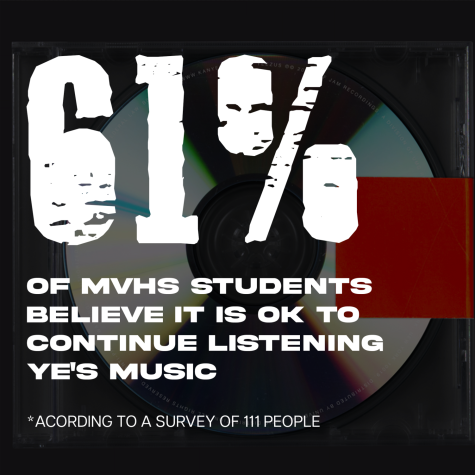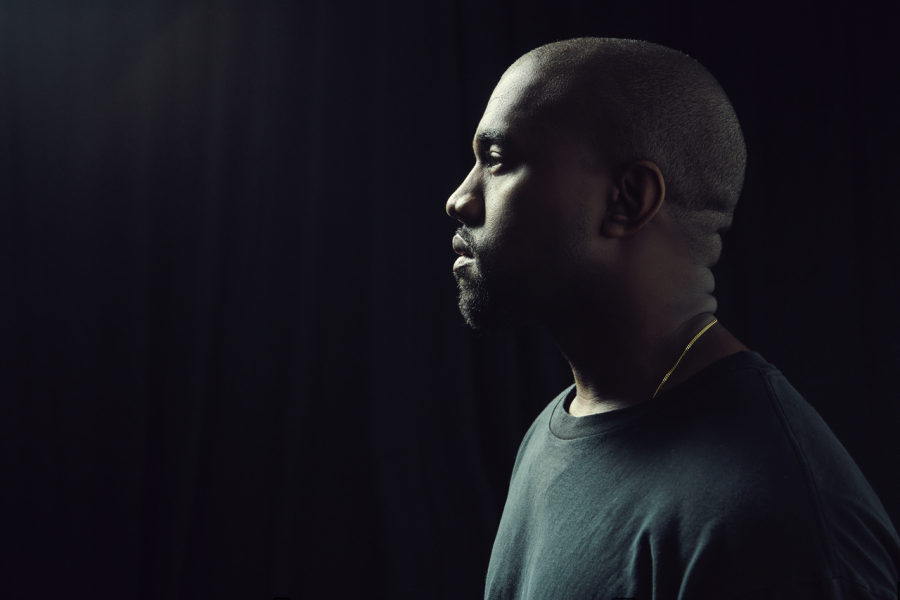To Ye or not to Ye
Examining Ye’s anti-semitism and what it means to be a fan
Rapper Ye has recently come under fire for a series of controversial tweets and statements.
December 16, 2022
Renowned rapper Ye’s statements and actions in the past few months crossed the line in the hearts of many fans and critics around the world. After an initial controversy over a series of anti-semitic tweets in October, outrage erupted when he claimed in a now deleted tweet that he would go “DEFCON 3 on jewish people.” Ye justifies his threats in the same tweet, stating, “The funny thing is I actually can’t be anti-semitic because black people are actually jew also you guys have toyed with me and tried to black ball anyone whoever opposes your agenda.”
Ye then dug himself deeper into controversy in December, stating in an interview that he “see[s] good things about [Adolf] Hitler,” and added “Every human being has something of value that they brought to the table, especially Hitler.”
After reading about how a group of people hung a banner on a Los Angeles Freeway that claimed “Kanye was right about the Jews,” senior Prerit Marwaha said that Ye’s statements are being used as an excuse for others to “come out of the woodwork” and reveal their own anti-semitism, enabling and giving a platform to anti-semitism.
Sophomore and Jewish Student Union President Erin Handelsman agrees, explaining that Ye’s large platform only exacerbates the existing anti-semitism in the U.S. Handelsman has seen others tweet in agreement with Ye’s statements, and she says his tweets foster a community where people can freely confess their anti-semitic beliefs. She draws parallels between these growing acts and popularization of anti-semitism in the nation and the beginnings of the Holocaust.
“Look back to World War II, Hitler caused a big uprising and made people believe him and follow him,” Handelsman said. “And that’s kind of what Ye is doing — he stood out on his platform saying these anti-semitic comments and now people are believing him and following him. I see a similarity between the two, and I don’t want what happened in World War I or World War II to happen today.”
Handelsman used to be an avid supporter of Ye’s music, especially his latest album “Donda,” and kept up with his life via his social media platforms. Now, however, she feels betrayed by his comments and tries to not show any support, whether that means ignoring his brazen tweets or turning his music off. Despite her own retirement as a fan, she acknowledges how his music has been influential for some and she doesn’t mind if her friends continue to listen to it.
Senior George Gino usually adheres to this process of separating the art from the artist, but he says that this time Ye’s anti-semitism has gone too far, and he can no longer justify consuming any content or merchandise Ye releases.
While to some it seems harmless to keep listening to his music, Gino explains that even streaming Ye’s songs on Spotify and helping earn revenue only further enables him to continue spreading these hurtful messages, with more money to his brand and a strong fanbase.
“If someone you’ve loved and you’ve been listening to this entire time all of a sudden become[s] really controversial, it’s really hard to let go,” Gino said. “But I think it’s right, because in order to push away from them or kind of move away from them, you have to be able to stop listening to them and basically supporting them.”
Marwaha continues to listen to Ye’s music — though he agrees with Gino and admits it’s not the most ethical thing for him to do. For Marwaha, it is difficult to justify letting go of some of his all-time favorite songs, like Ye’s 2007 track “Flashing Lights,” citing the stark difference between Ye’s persona today and his persona 15 years ago.
“The music I listen to wasn’t created by current Kanye, the one that’s been exposed to new extreme ideas,” Marwaha said. “It was made by a previous one — somebody that was mourning the loss of his mother or celebrating his success.”
The Financial Times published an editorial calling for the removal of his music from major streaming platforms Apple Music and Spotify. Since October, Ye has seen a 20% decline in radio play, an MRC documentary scrapped and has lost ties with Balenciaga, Gap and Adidas. With the cancellation of these deals, Ye officially lost his billionaire status.

“If I did see someone wearing his GAP hoodie or recent shoes that he produced, then I would just feel ashamed because I don’t want people to be following him and supporting him like that,” Handelsman said. “I get Yeezys — they’re old and that was before he said all this. But [buying] his new stuff, it’s just like, ‘What are you doing? Come on.’” A majority of the MVHS community agrees with Handelsman’s sentiment. In a survey of 119 people, 75% of the respondents said that they do not believe it is OK to keep wearing or purchasing Ye’s merchandise.
Gino agrees, stating how the situation has escalated from a single controversy to “an unjustifiable mess.”
“In October I said [to] separate the art from the artist,” Gino said. “I still think that’s true, but not with [this] scenario right now. It’s just gone too far. And supporting him will just [make the] situation worse.”




















